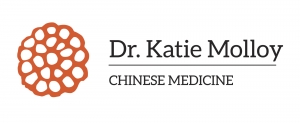More frequently than I would like, I’m greeted in the Chinese medicine clinic by patients who sheepishly admit to being on a course of predisnolone or penicillin. As much as I reassure them there’s no need to choose between conventional and natural medicines (in fact, modern Chinese medicine advocates for the integration of both) it can be difficult to convince someone who prefers the idea of healing naturally. The key is to know when and why to use each model of healthcare, and how to combine them.
What is the difference between Eastern and Western medicine?
Development of Western medicine is based on scientific reasoning and hypothetical deduction through evidence-based clinical trials. Disease is seen to be separate from the individual; it is something that a patient has. Treatment is disease-specific, meaning many individuals can be diagnosed with the same disease and treated similarly.
Chinese medicine has been formed using an inductive method, based on thousands of years’ clinical experience. Health is understood as the expression of the body in a balanced state, where disease is the result of an imbalance in the patient’s being. In this vein, disease does not exist in its own right, it forms part of the individual’s overall experience. When it comes to Chinese medicine, understanding the nature and location of imbalance is the aim of diagnosis, and restoring balance is the focus of treatment.
Which to use?
There are obvious cases of medical emergencies, traumatic injury, acute infection and other serious conditions such as cancer, for which surgical or drug interventions are known and proven, meaning conventional Western medicine is the first port of call.
For more longstanding and chronic conditions where the Western medical approach can be to manage symptoms rather than the cause, Chinese medicine may be of great use. In each treatment and individual we look to correct the imbalance at the core of the problem, while at the same time relieving active symptoms.
Some examples of such conditions include allergies, asthma, insomnia, depression, anxiety, chronic fatigue, menstrual pain, PMS, back pain, attention deficit and hyperactivity disorder (ADHD), among others. Chinese medicine can be a very effective adjunct or complement to conventional medical care.
Some examples…
If you’ve fallen ill with an acute bacterial infection, and generally enjoy good health, a course of antibiotics should clear it. Chinese medicine can support your system to resolve the infection, help restore your digestive function to an optimum level (antibiotics will likely have destroyed some good gut bacteria), and build immunity so you’re less likely to fall ill as you recover.
In more chronic cases of ongoing viral infection or a hypersensitivity reaction to allergens as in hay fever, the Chinese medicine approach is to identify why your body doesn’t have the capacity to recover and stay healthy. Once identified, treatment will encourage your system to correct the imbalance at its core, meaning immunity improves, and you’re less susceptible to picking up viruses or being triggered by allergens or stressors and mounting an unnecessary immune response. Often it’s appropriate to use western drugs (such as antihistamines) in combination, at least in the acute phase, to manage symptoms whilst the Chinese medicine treatment takes effect.
Do I need to choose one or the other?
I’m often asked for advice on when to seek help from natural methods of healthcare and when to rely on more conventional forms. The short answer is, use both!
Recent research undertaken at the emergency departments of four hospitals across Melbourne found acupuncture to be just as effective as drugs for pain relief, prompting discussion and investigation into the viability of acupuncture as a cheap and effective method of standard care in the public health system.
So I can use them together?
Absolutely! Each system has its strengths, weaknesses, levels of excellence and limitations. More current research confirms a combined approach can be more effective than choosing one or the other exclusively. It’s most important to find registered healthcare practitioners you trust, and work with a team of professionals to form a well rounded level of care for you.







